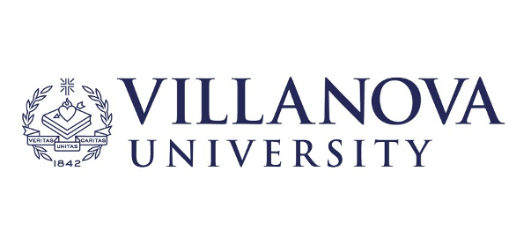With a focus on theory and application, a Master in Finance prepares graduates to navigate complex financial environments while building critical skills in areas including statistics, analytics, and quantitative finance. For many, the program is a turning point, enabling career pivots and opening doors to new opportunities.
Master of Science in Finance (MSF) graduates at the Villanova School of Business (VSB) consistently land roles with prestigious firms such as AlixPartners and Capital One. Here’s how three VSB alumni leveraged their MSF to launch top careers in finance.
1. Jobs in finance: Consulting and restructuring at AlixPartners
Max Steele’s path to AlixPartners shows how a Master of Science in Finance can help you pivot into a niche field.
After studying economics and math in Michigan, Max worked at a small manufacturing firm, which exposed him to private equity and inspired him to pursue a career in finance.
However, he realized he needed formal training and decided a Master of Science in Finance was the ideal path to achieve that goal.
“I initially thought about doing a PhD in economics or math, but I realized I wanted more of a corporate finance track, and the Villanova School of Business offered exactly what I needed. The program set me up perfectly for the job I wanted,” Max explains.
At VSB, Max honed his collaborative skills through team-based projects.
“Almost everything was project-based. That prepared me for working with peers in the real world, especially in finance, where you’re often part of a team,” he says.
Networking was another key to Max’s success. “Villanova’s alumni network was invaluable. I started reaching out to people even before the program began, and the support I got was incredible.” His efforts helped him land an analyst role at AlixPartners, a firm that recruits exclusively from select schools including the Villanova School of Business.
2. Jobs in finance: Launching a career in corporate finance at Capital One
Along with more niche positions, the Master of Science in Finance program at VSB also opens doors to structured corporate finance roles. For Francois D’Elia, the program’s reputation was invaluable in launching a top finance career.
“A lot of the interviews I got were because of Villanova’s name. It helped get my foot in the door,” he says.
The program’s curriculum allowed Francois to explore different elements of finance.
“Villanova had classes for pretty much every career path. Whether it was corporate banking, fixed income, or investment banking, the exposure was there, and that was really helpful,” he says.
Francois also appreciated the program’s focus on networking and communication. “We had a professional development course that taught us how to network, update our résumés, and prep for interviews. That was huge.”
Now, Francois is part of Capital One’s rotational program, exploring areas including risk management and corporate finance. “I wasn’t entirely sure what part of finance I wanted to specialize in, so a rotational program was perfect for me. It’s a great way to see different sides of the business.”
As with Max, Francois believes that hard work is the key to success: “Don’t expect the program to guarantee you a job. You still have to put in the work—networking, applying yourself, and being proactive are key.”
3. Jobs in finance: Pivoting to investment banking at Capital One
Grant Jones took a risk when he pivoted into finance, and it paid off.
After earning a degree in film studies and business administration in Ohio, Grant worked in business development at Ford Motor Company. While he gained valuable experience, he was ready to embark on a new challenge in his career.
“Villanova checked all the boxes for me,” Grant says. “It was a one-year program, so I could pivot quickly, their MSF alumni had placed well throughout the industry, and the resources offered were exactly what I was looking for to polish up my resume and skill set. Overall, Villanova made sense financially and professionally.”
At the Villanova School of Business, Grant’s coursework in investment banking and portfolio theory proved essential.
“The Investment banking class provided me with a foundational corporate strategy skill set while Portfolio Theory introduced me to a variety of valuation methodologies, equity research practices, and core macroeconomic topics as they relate to the world of finance. I still use those skills every day.”
He adds that there was a lot of interplay between the classes he was taking and his internship at a mezzanine fund, where he was able to directly apply something that he learned in class one day to his work the next day.
Now an investment banking analyst at Capital One, Grant focuses on leveraged finance transactions, splitting his time between pitching to clients and structuring and executing deals.
“One of my favorite parts of the job is putting together client decks, lender presentations, and credit memos. There’s a storytelling element to it, and coming from a creative background, I find that fascinating.”
If you’re looking to land a job in finance, Grant says the secret to success is determination, resilience, and hard work: “Treat the program like a job. Get to campus early, stay late, and immerse yourself in everything—networking, classes, and internships. Villanova provides the tools, but you have to put in the effort.”
Student Reviews
Villanova School of Business








